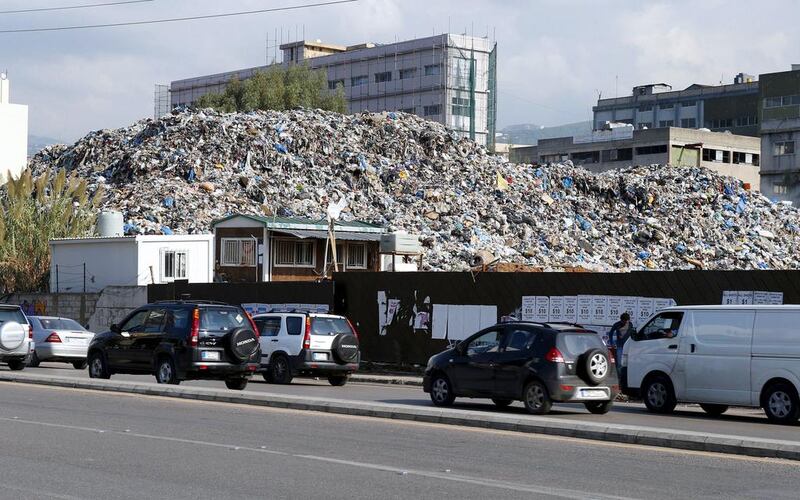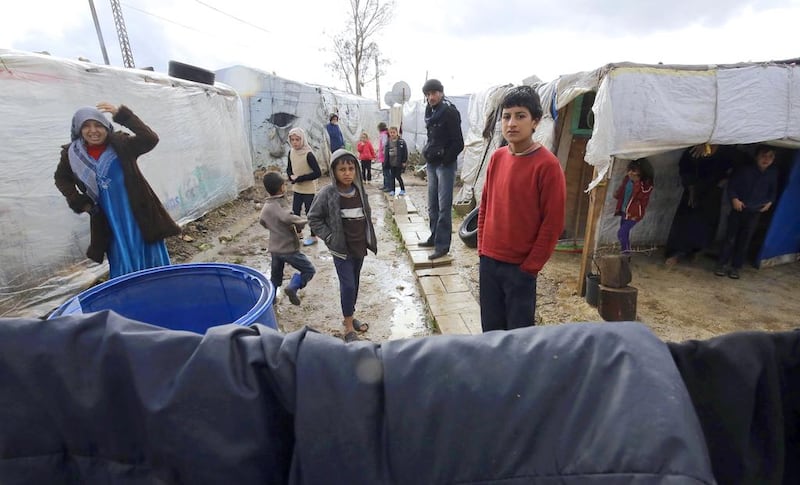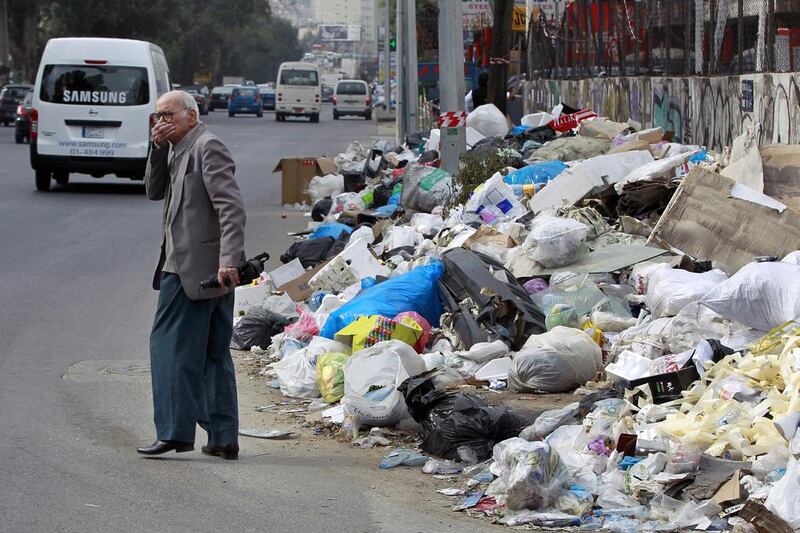This year Lebanon was defined by more of the same political deadlock and economic decline that has gripped the tiny troubled Mediterranean nation since 2012. But it was the almost biblical sight of rivers of rubbish running through the streets of Beirut that will be the enduring image of 2015.
The debacle of rubbish-strewn roads captured, more than any other, the government’s incompetence and dereliction of duty.
The challenges facing the country at the start of the year were relatively straightforward. If the political class had Lebanon’s best interests at heart, it needed to elect a new president and then set about reviving the economy.
To do that it had to decide on a firm long-term policy on what to do with as many as 2 million Syrian refugees. It also had to stimulate key sectors, such as tourism, and adopt a positive and transparent position on awarding the contract to hunt for and extract the estimated 865 billion barrels of oil and 96 trillion cubic feet of natural gas under its waters, worth, over time, about US$600 billion.
It also had a bearing on Lebanon’s international standing. At the end of last year, blue chip names such as Total, Shell, Chevron and ExxonMobil, which had initially shown interest in bidding for drilling rights, signalled that they were no longer optimistic about the prospects of the government launching licensing any time soon. They blamed Lebanon’s chronic politicking, and hinted that there may not be the appetite to participate in any future tender even if the government got its act together. In May 2013, I wrote on these pages that “the permanent layer of filth and corruption that coats Lebanese politics” would kill anything destined for the national good. Nearly 30 months later, I stand by those words.
Elsewhere, the economic effect of the arrival of between 1.5 million and 2 million Syrian refugees, the equivalent to 50 per cent of Lebanon’s population, continues to undermine the country’s economic and social fabric. Lebanon’s notoriously creaky infrastructure has been pushed to breaking point, while the thousands of Syrians that have seeped into the general community, have created social tensions and contributed to a rise in unemployment in the Lebanese workforce that has been undercut by a new supply of cheap labour.
The country’s banks, with assets of US$199bn, continue to thrive. They make up our biggest industry by a country mile, but they are still not lending enough to the private sector to stop the brain drain, or stimulate consumption, alleviate income shortfalls, allow businesses to grow and create jobs. In other words, behave like banks are supposed to instead of lending to the state – a situation that in September prompted Jad Jaaban, an economist at the American University of Beirut, to publish a report that painted a picture of entrenched cronyism between the political class and the banking sector. The report did not tell us anything we did not already know, but it was becoming clear that Lebanese people were no longer scared to call the political elite to account.
And it was only a matter of time before the simmering resentment and frustration came to a head. In mid-July, Sukleen, the company contracted since the mid-1990s to collect Beirut’srubbish, said it no longer had anywhere to put it. The government had been warned of this a year earlier, but had taken no action to find a new landfill, and within days 20,000 tonnes of refuse was piling up on the capital’s streets. The state panicked and sent lorries out to collect it with orders to literally hide it in valleys, car parks and even under bridges.
Environmentalists, scientists and doctors warned that if the rubbish was not correctly disposed off before the first rains, Lebanon would face a major health emergency. No one listened and in October, the first deluge sent thousands of tonnes of filthy refuse rushing through the streets.
Activists from the newly formed You Stink campaign quite reasonably called for the government’s resignation. It was the biggest threat to the state’s legitimacy since the 2005 Cedar Revolution and once again the Beirut Central District became the battleground, as the activists vented their fury at the seat of government at the Grand Serail.
Solidere, the company tasked with management of real estate in the Beirut Central District, saw an opportunity to blame the area’s lack of business activity on the demonstrators, despite the fact the zone had been a virtual ghost town since 2012.
Five months later, there is still no solution to the crisis and toxins continue to leech into the soil and the groundwater. And that’s about it really. Oh yes. Lebanon still does not have a president.
business@thenational.ae








